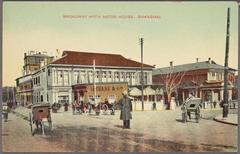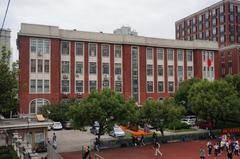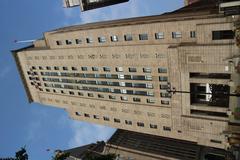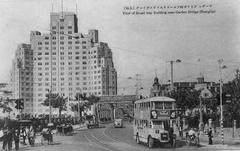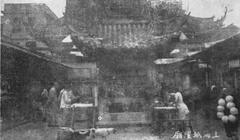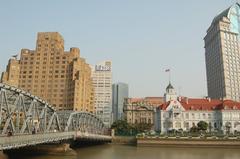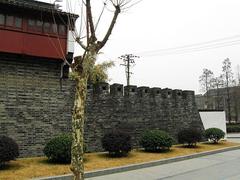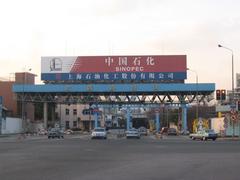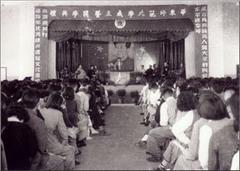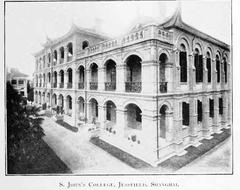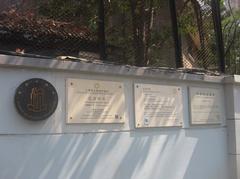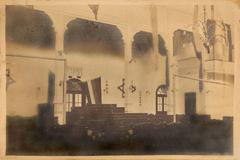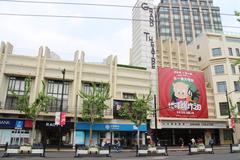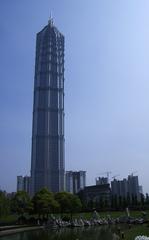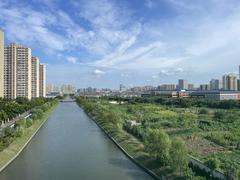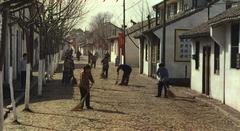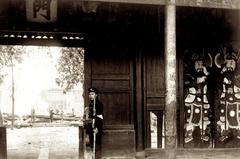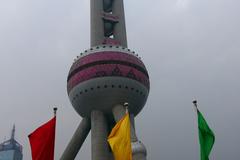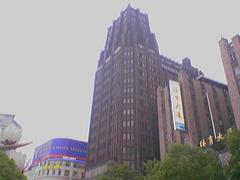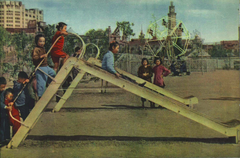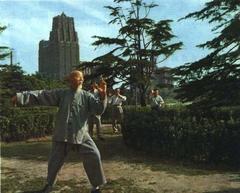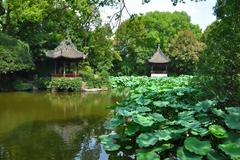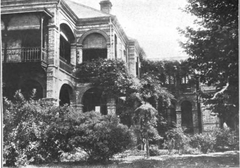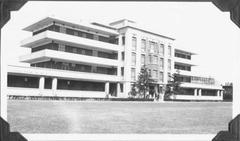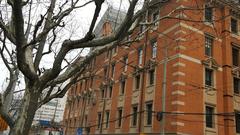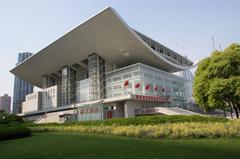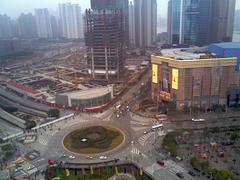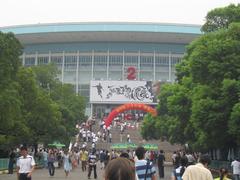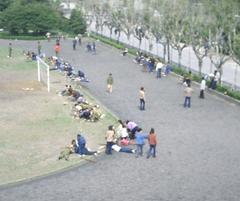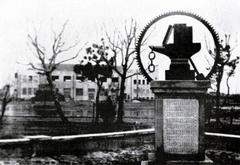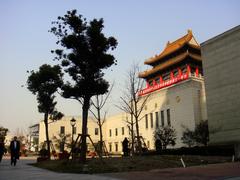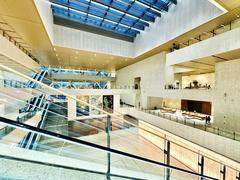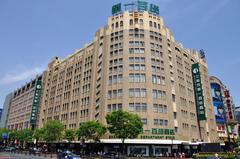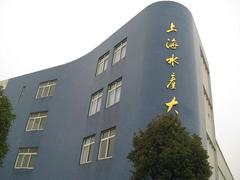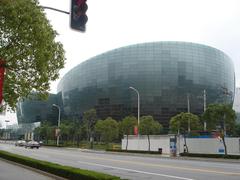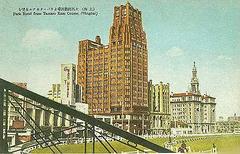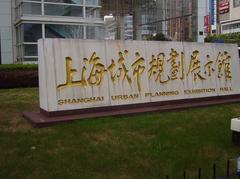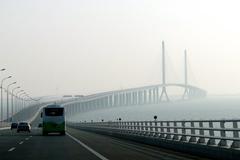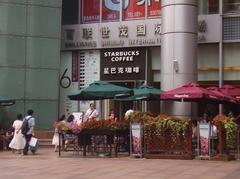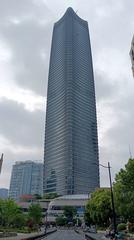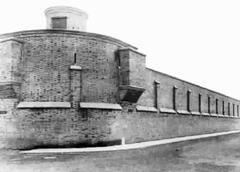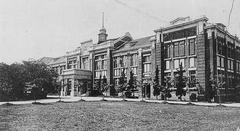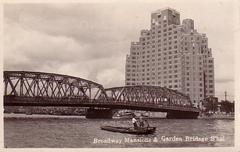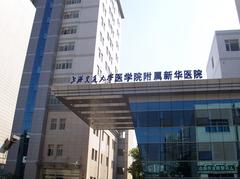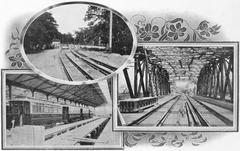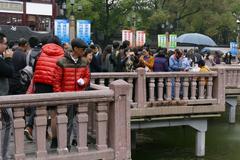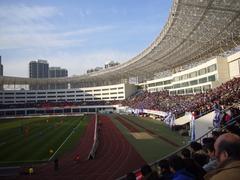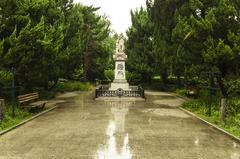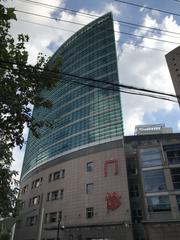Visiting the Consulate-General of Japan in Shanghai, China: Tickets, Hours, and Tips
Date: 14/06/2025
Introduction
Shanghai is a city where history, diplomacy, and vibrant multicultural influences converge. At the heart of this convergence is the Consulate-General of Japan in Shanghai—an institution that not only manages diplomatic affairs, but also stands as a symbol of the deep-rooted relationship between Japan and China. This guide offers a comprehensive overview of the consulate’s historical significance, essential visitor information, and tips for making the most of your experience exploring Japanese heritage in Shanghai.
For more in-depth historical context and cultural exploration, refer to Exploring Shanghai’s Japanese Heritage and the Consulate-General of Japan in Shanghai website.
Table of Contents
- Introduction
- Historical Overview
- Diplomatic Role and Consular Services
- Visiting the Consulate-General
- Exploring Japanese Heritage in Shanghai
- Travel Tips
- FAQs
- Conclusion
- References
Historical Overview
Early Japanese Presence
Japan’s interaction with Shanghai began in the late 19th century, a time of major change in East Asia. The 1880s saw the arrival of Japanese teahouses and geisha entertainment venues, introducing elements of Japanese cuisine and culture to the city (ebrary.net). However, the First Sino-Japanese War (1894–1895) temporarily halted this cultural exchange as most Japanese residents left the city.
Growth and Challenges
Following the Treaty of Shimonoseki in 1895, Japan gained extraterritorial rights in Shanghai, similar to other foreign powers (Wikipedia). The Japanese community steadily grew, especially in Hongkou District, where Japanese restaurants and businesses flourished by the early 20th century (factsanddetails.com). By the late 1930s, the Japanese population reached over 25,000, peaking during World War II at nearly 100,000.
During this era, Japanese institutions—including schools, newspapers, and social clubs—emerged, fostering a vibrant expatriate community. Japanese entrepreneurs contributed significantly to Shanghai’s modernization, introducing new manufacturing techniques and infrastructure projects, such as the development of the Songhu Railway (Wikipedia).
Postwar Renewal
After World War II, the Japanese community diminished as residents were repatriated and properties transferred to Chinese control. Diplomatic normalization in the 1970s marked a new era, with Japanese nationals returning to Shanghai to establish businesses, schools, and cultural organizations (TravelChinaGuide). Today, the Japanese community is an integral part of Shanghai’s cosmopolitan landscape.
Diplomatic Role and Consular Services
The Consulate-General of Japan in Shanghai is a critical hub for diplomacy, cultural exchange, and support for Japanese citizens. Its functions include:
- Visa and Passport Services: Processing Japanese visa applications for local residents and passport services for Japanese nationals.
- Assistance to Japanese Nationals: Providing emergency support, legal guidance, and information on local laws.
- Trade and Investment Support: Facilitating business relations and offering market insights for Japanese enterprises.
- Cultural and Educational Exchange: Organizing cultural programs, language courses, and community events to foster mutual understanding.
For detailed and up-to-date consular information, visit the official consulate website.
Visiting the Consulate-General
Location and Access
- Address: 8 Wanshan Road, Changning District, Shanghai, 200336
- Nearest Metro: Zhongshan Park Station, Line 2
- Contact: (+86) 21-5257-4766 | Fax: (+86) 21-6278-6088
- Official Website: Consulate-General of Japan in Shanghai
Hours and Appointments
- Operating Hours: Monday to Friday, 9:00 AM – 5:00 PM (closed on Chinese and Japanese public holidays)
- Appointment Booking: Required for most consular services, including visa and passport applications. Make appointments via the consulate’s website.
- Walk-in Policy: Limited; advance booking is strongly advised.
Security and Accessibility
- Identification: Bring valid ID and all necessary documentation.
- Security Procedures: All visitors must pass security checks.
- Accessibility: Facilities are accessible for people with disabilities; contact in advance for assistance.
Exploring Japanese Heritage in Shanghai
Key Sites and Neighborhoods
- Hongkou District (Zhapu Road): Once the center of ‘Japantown,’ featuring historical buildings and remnants of early Japanese influence.
- Gubei Area: Modern heart of the Japanese expatriate community, home to authentic Japanese restaurants, supermarkets, and cultural centers.
- Cultural Landmarks: Japanese restaurants, teahouses, and community centers offer immersive experiences and authentic cuisine.
Cultural Events and Festivals
- Annual Japanese Festivals: Food fairs, dance performances, and art exhibitions are held throughout the year, especially in spring and autumn.
- Guided Tours: Local agencies provide tours of former Japanese neighborhoods and heritage sites, enriching visitors’ understanding of the community’s history.
- Consulate Events: The consulate occasionally hosts cultural programs and exhibitions open to the public (embassy-info.net).
Travel Tips
- Metro Access: Shanghai’s metro system is efficient for reaching key neighborhoods; taxis and buses are also available.
- Best Visiting Times: Arrive early to avoid crowds, especially during festivals and holidays.
- Etiquette: Dress modestly and behave respectfully when visiting cultural or religious sites.
- Language: Japanese, Chinese, and English are commonly used within the consulate and surrounding areas.
- Photography: Not permitted inside the consulate; allowed in public areas and heritage sites.
FAQs
Q: Can tourists visit the consulate without an appointment?
A: No, the consulate is not open for general tourism. Access is limited to those with official business or appointments.
Q: Are Japanese heritage sites in Shanghai open to the public?
A: Many are accessible, though some may require advance arrangement or have restricted hours.
Q: How do I book a consular appointment?
A: Use the consulate’s official website to schedule appointments for services like visa applications.
Q: Is the consulate accessible for people with disabilities?
A: Yes, contact the consulate in advance for specific accessibility needs.
Q: What should I bring for my consular visit?
A: Valid identification and all necessary documentation for your service.
Conclusion
The Consulate-General of Japan in Shanghai is far more than a diplomatic office—it’s a living testament to the dynamic relationship between Japan and China, shaped by over a century of cultural, economic, and social exchange. While the consulate itself is not a tourist destination, understanding its history and role adds depth to any visit to Shanghai. Surrounding neighborhoods offer unique opportunities to explore Japanese heritage, from historic ‘Japantown’ to contemporary cultural events and cuisine.
For the latest updates and official announcements, always check the consulate’s website. Enhance your visit by exploring local Japanese cultural festivals, heritage sites, and the vibrant communities that continue to shape Shanghai’s multicultural identity.
References
- Exploring Shanghai’s Japanese Heritage: A Visitor’s Guide to Historical Sites and Cultural Experiences (ebrary.net)
- History of Shanghai (Wikipedia)
- Shanghai Japanese Consulate General (embassy-info.net)
- Consulate-General of Japan in Shanghai (TravelChinaGuide)
- Facts and Details: Shanghai (factsanddetails.com)

